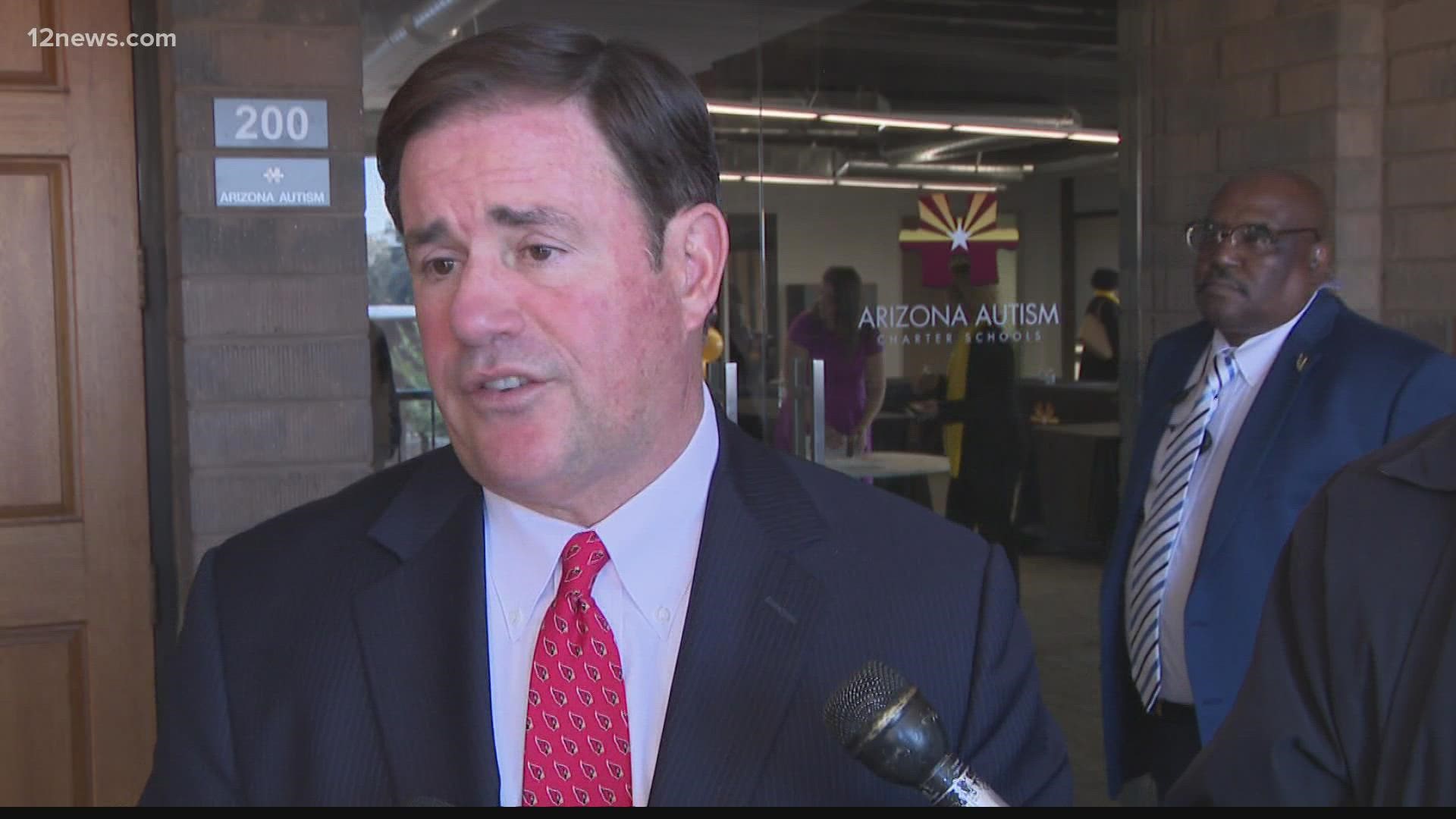PHOENIX — State leaders have big decisions ahead of them about the future of education. Meanwhile, a spending deadline looms that could dramatically hurt schools in just a few weeks.
Arizona state lawmakers will weigh proposals related to school choice, infrastructure, academic performance and overall funding. The legislature has the luxury of dealing with a surplus of nearly $1 billion in the state's budget.
“Money is not our issue at the state level,” said Gov. Doug Ducey. “It’s how we’re applying these dollars and that we’re seeing a return on investment.”
Among Ducey’s proposals is an allotment of $20 million to extend the School Transportation Modernization Grants, a program that provides more transportation options to students.
Ducey’s budget also proposes allocating $100 million to launch an 8-week summer camp to help students catch up in core subjects.
Arizona State Sen. Paul Boyer, R-Glendale, who is also a charter school teacher, wants to see an expansion of empowerment scholarship accounts (ESA’s).
“There is a gap right now with a certain population of students that just don’t have the means to get into a school that would really benefit them,” said Boyer, whose district covers most of Glendale and North Phoenix.
The leader of Arizona’s teachers' union opposes the expansion of ESA’s. Joe Thomas, president of the Arizona Education Association, said legislators are focusing too much on school choice.
“I think we need to talk a lot more about school quality,” Thomas said.
Arizona remains near the bottom nationally in teacher pay and has one of the worst student-to-counselor ratios in the country.
“And they could provide relief to students in our schools right now, to make sure we have enough technology that we need. To make sure that we can hire enough people to meet the needs of our students, or maybe even hire more counselors for our students,” Thomas said.
State Rep. Michelle Udall, R-Mesa, is a high school teacher and is formulating a bill that will be aimed at improving academic performance in all public schools.
“It will make sure that schools have an opportunity to improve and the resources to do interventions to improve,” Udall said. “It gives them options to partner with other high-performing schools to make the improvements that they need to.”
Meanwhile, a mandatory March 1 deadline is fast approaching and it calls for a sharp drop in spending. The legislature will need to pass an override to avoid devastating cuts to schools.
“I’m certain we’re going to be able to figure things out from a budgetary perspective,” Ducey said.
Up to Speed
Catch up on the latest news and stories on the 12 News YouTube channel. Subscribe today.

